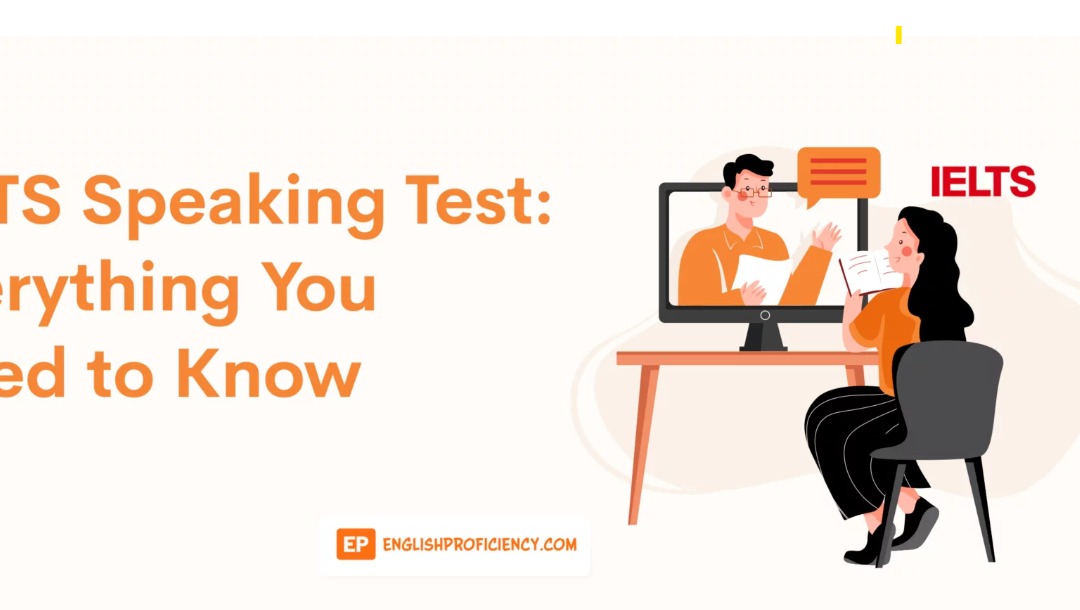
How to Ace the IELTS Speaking Section in the IELTS Test

The best way to predict the future is to create it – Abraham Lincoln
We at EDUANANNT EDUCATION believe in the above principle. Accordingly, we provide intensive training program
for the IELTS test and also provide strategies on every topic. Concurrently, in the IELTS Speaking test, you have a discussion with a certified Examiner. Additionally, it is interactive and as close to a real-life situation as a test can get.
Emphatically, the IELTS Speaking test is the same for both Academic and General Training tests.
Furthermore, the speaking test takes 11-14 minutes and consists of an interview with an examiner. Consequently, the interview is recorded.
Presently, the IELTS speaking test has three parts:
| Part 1-Introduction and Interview | Examiner introduces him/herself and checks your name. The examiner then asks you questions on general topics. | 4–5 minutes |
| Part 2-Individual long turn | Examiner gives you a written task card. You have 1 minute to think (take notes) before you have to speak for 1–2 minutes. Examiner asks one or two questions at the end of your talk. | 3–4 minutes (including 1 minute preparation time) |
| Part 3-Two-way discussion | Discuss with the examiner more abstract issues and concepts which are thematically linked to the topic of your talk in Part 2. | 4–5 minutes |
The IELTS Speaking Test 9-band scale
You will be given a score from 1 to 9 for each part of the test – Listening, Reading, Writing and Speaking.
Markedly, the average produces your overall band score. Consequently, you can score whole (e.g., 5.0, 6.0, 7.0) or half (e.g., 5.5, 6.5, 7.5) bands in each part of the test.
Distribution of Band Score
| Band score | Skill Level | Description |
| Band 9 | Expert user | You have a full operational command of the language. Your use of English is appropriate, accurate and fluent, and you show complete understanding. |
| Band 8 | Very good user | You have a fully operational command of the language with only occasional unsystematic inaccuracies and inappropriate usage. You may misunderstand some things in unfamiliar situations. You handle complex detailed argumentation well. |
| Band 7 | Good user | You have an operational command of the language, though with occasional inaccuracies, inappropriate usage and misunderstandings in some situations. Altogether, you handle complex language well and understand detailed reasoning. |
| Band 6 | Competent user | Generally you have an effective command of the language despite some inaccuracies, inappropriate usage and misunderstandings. Basically, you can use and understand fairly complex language, particularly in familiar situations |
| Band 5 | Modest user | You have a partial command of the language, and cope with overall meaning in most situations, although you are likely to make many mistakes. You should be able to handle basic communication in your own field. |
| Band 4 | Limited user | Your basic competence is limited to familiar situations. You frequently show problems in understanding and expression. You are not able to use complex language. |
| Band 3 | Extremely limited user | You convey and understand only general meaning in very familiar situations. There are frequent breakdowns in communication. |
| Band 2 | Intermittent user | You have great difficulty understanding spoken and written English. |
| Band 1 | Non-user | You have no ability to use the language except a few isolated words. |
| Band 0 | Didn’t attempt the test | You did not answer the questions. |
Furthermore for more information, contact us at +971 58 585 3551 or visit our website at www.anannt.ae
Identically. Indeed. Instead. Lastly. Later. Lest. Meanwhile. Moreover. Nevertheless. Nonetheless. Nor. Occasionally. Otherwise. Once. Overall.


Recent Comments